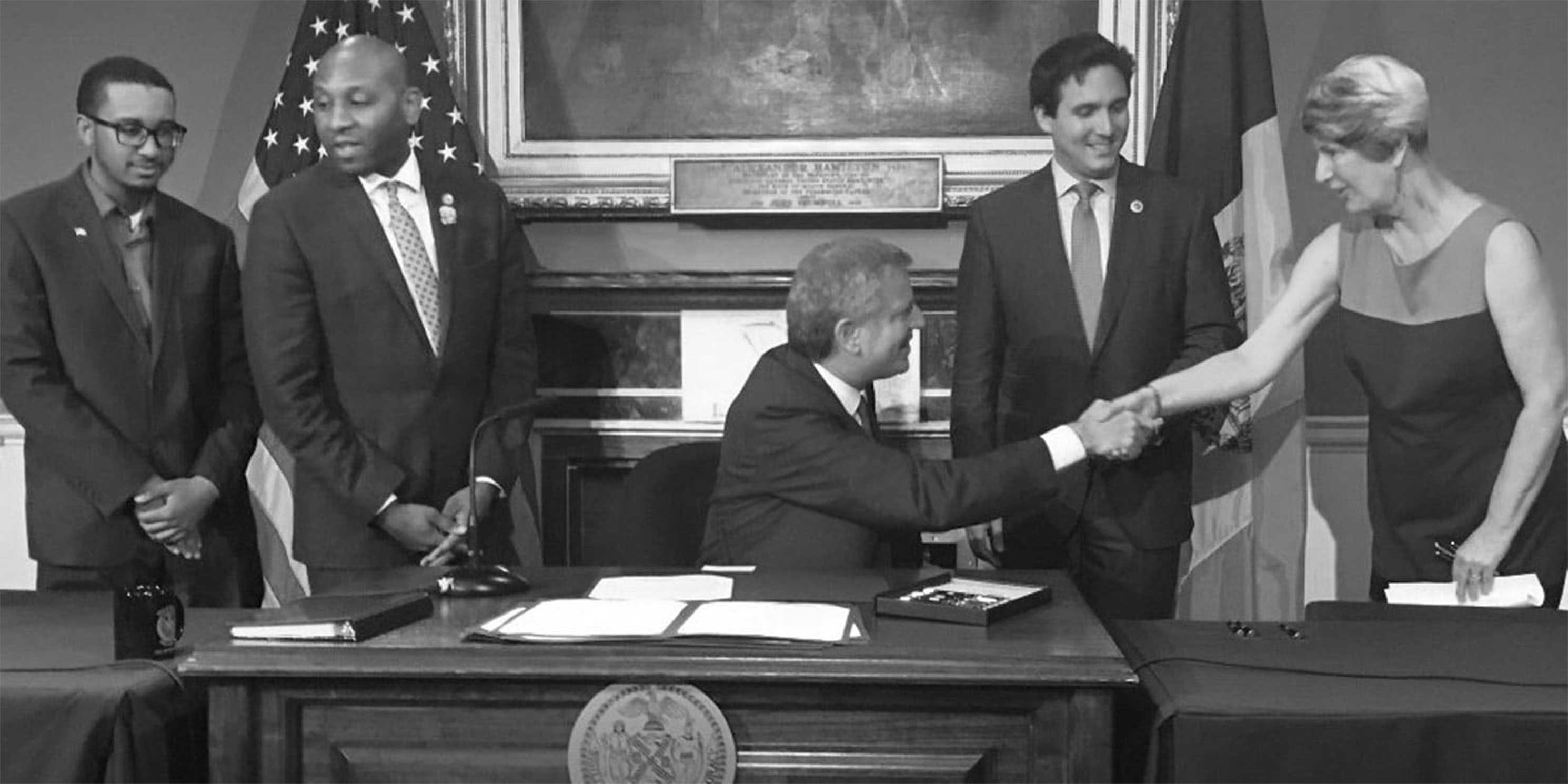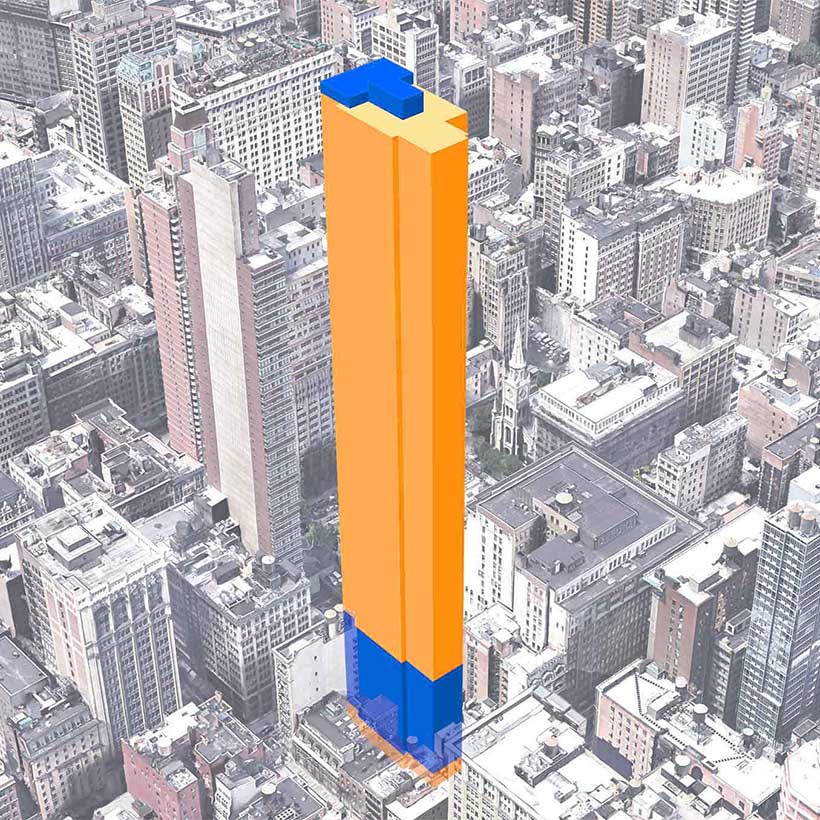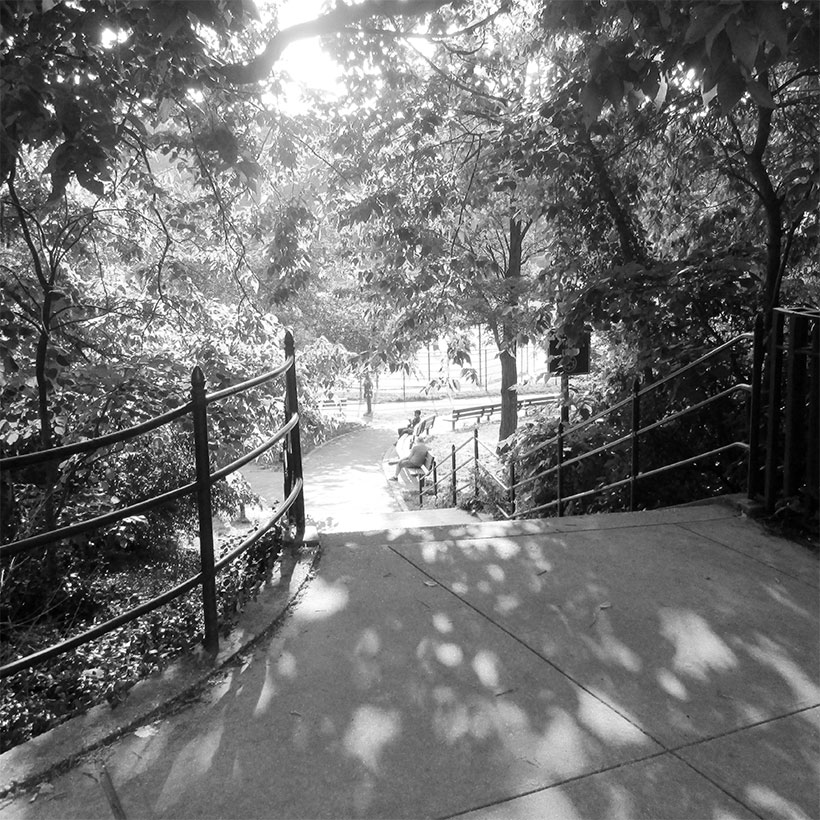Important Win for Transparency in Zoning Variances
MAS applauds Mayor de Blasio and the City Council for enacting a series of laws to reform the Board of Standards and Appeals’ zoning variance process
Yesterday afternoon, MAS President Elizabeth Goldstein joined City Council Members Ben Kallos and Donovan Richards, and Council colleagues as Mayor Bill de Blasio signed into law a series of reforms to the Board of Standards and Appeals zoning variance process.

MAS has long advocated for efficiency and transparency in land use, and many of these reforms were based upon our recommendations. In 1976 and 2004, MAS released landmark studies identifying abuse and misuse of the variance process, which allows property owners to bypass zoning regulations in certain hardship situations. We showed that clusters of these individual variances have effectively resulted in the rezoning of certain communities, without taking into account the cumulative impacts on light and air, traffic, parking, school capacity, and other city services.
This piecemeal approach has given the Board of Standards and Appeals authority, but not the responsibility, that is intended for the City Planning Commission. Indeed, it has left neighborhoods without a means to manage the wholesale change taking place around them.
We applaud Mayor de Blasio and the City Council-Council Member Kallos, in particular-for enacting these sensible pieces of legislation.
Application Reform
- Introduction 1392-A, by Kallos – Sets minimum application requirements for developers to show why zoning laws should not apply to them including key financial disclosures with analysis by real estate professionals, neighborhood studies showing unique conditions, and affirmations under penalties of perjury with fines for knowing violations of up to $15,000.
Decision Reforms
- Introduction 418-A, by Koslowitz – The BSA will be required to write decisions with responses to recommendations from Community Boards and Borough Boards.
- Introduction 282-A, by Van Bramer – The BSA will be required to write decisions that respond to any relevant evidence and arguments submitted by the City Planning Commission, Community Boards, Borough Boards, lessees and tenants as well as owners.
Notification Reforms
- Introduction 1200-A, by Richards – Proof of service will be required for applications and materials mailed to Council Members, Borough Presidents, Community Boards and other city agencies, with verification of receipt to be posted online.
- Introduction 514-A, by Matteo – Notifies property owners when variances are expiring and penalties will be incurred in the coming six months.
City Staffing Reforms
- Introduction 1390-A, by Kallos – The Department of City Planning will appoint a BSA coordinator to appear before the BSA to submit testimony in defense of the zoning resolution, and such testimony would be available online.
- Introduction 1391-A, by Kallos – A state certified real estate appraiser with no less than 5 years’ experience will be available to work for or consult with the BSA to review and analyze real estate financials provided by developers.
Transparency Reforms
- Introduction 1393-A, by Kallos – The number of pre-application meeting requests, number of applications, number approved or denied, and an average length of time until a decision would be reported biannually.
- Introduction 1394-A, by Kallos – The location of all variances and special permit applications acted upon by the Board since 1998 would be available as a list and a layer on an interactive map of the city.



